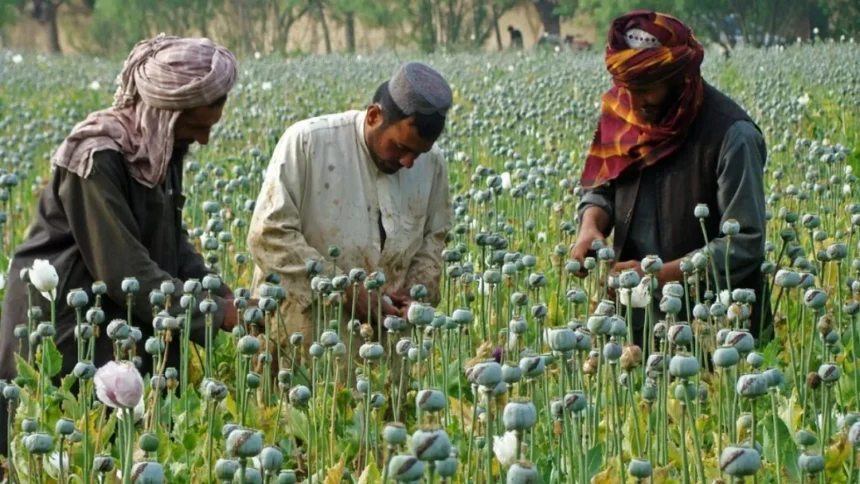RASC News Agency: The United Nations Office on Drugs and Crime (UNODC) has raised alarm over a significant increase in opium cultivation in Afghanistan. The agency reported a 30% rise in production and a staggering 130% surge in market value in 2024 compared to the previous year. In a statement released on Wednesday, November 27, the UNODC revealed that Afghanistan produced 433 tons of opium this year, estimating its market value at approximately $260 million. This represents a dramatic 130% increase in value from the previous year.
The UNODC expressed deep concern over the growing scale of opium cultivation, which starkly contradicts the Taliban’s claims of eliminating drug production in the country. According to the statement, opium production and its market value initially plummeted following the Taliban leader’s 2022 decree banning the cultivation and production of narcotics. The production dropped by 93%, and its value fell by 80%. However, recent data indicate a reversal of this trend, with cultivation and production once again on the rise.
Earlier reports by the UNODC had already flagged an increase in poppy cultivation during 2024, noting a 19% rise compared to 2023. The cultivated area now spans 12,800 hectares, which, while significantly lower than the 232,000 hectares recorded in 2022, signals a concerning resurgence. Independent reports have also corroborated these findings, confirming that drug cultivation has escalated in Afghanistan despite the Taliban’s claims. Additionally, evidence suggests a sharp increase in the production of synthetic drugs, including methamphetamine, since the Taliban issued their prohibition on traditional drug production.
Officials from the United Nations, as well as neighboring and regional countries, have consistently expressed concerns about the growing production of synthetic drugs in Afghanistan. They warn that this alarming trend poses severe regional and global security threats, further complicating the already precarious situation in the country.






